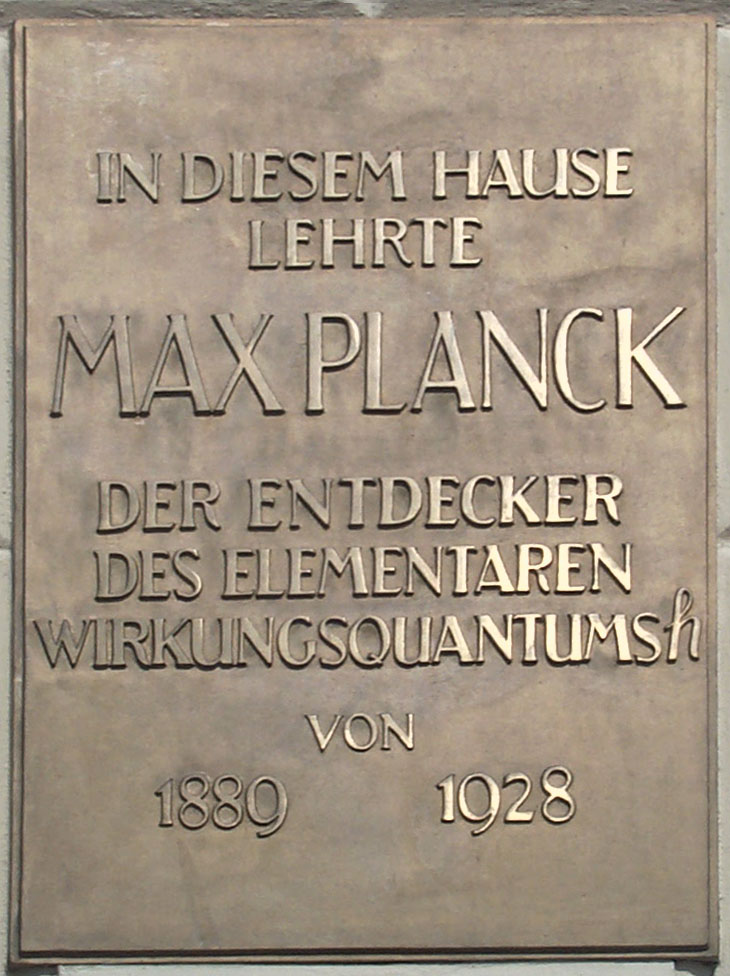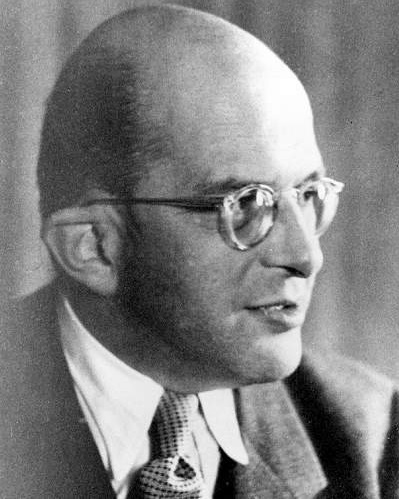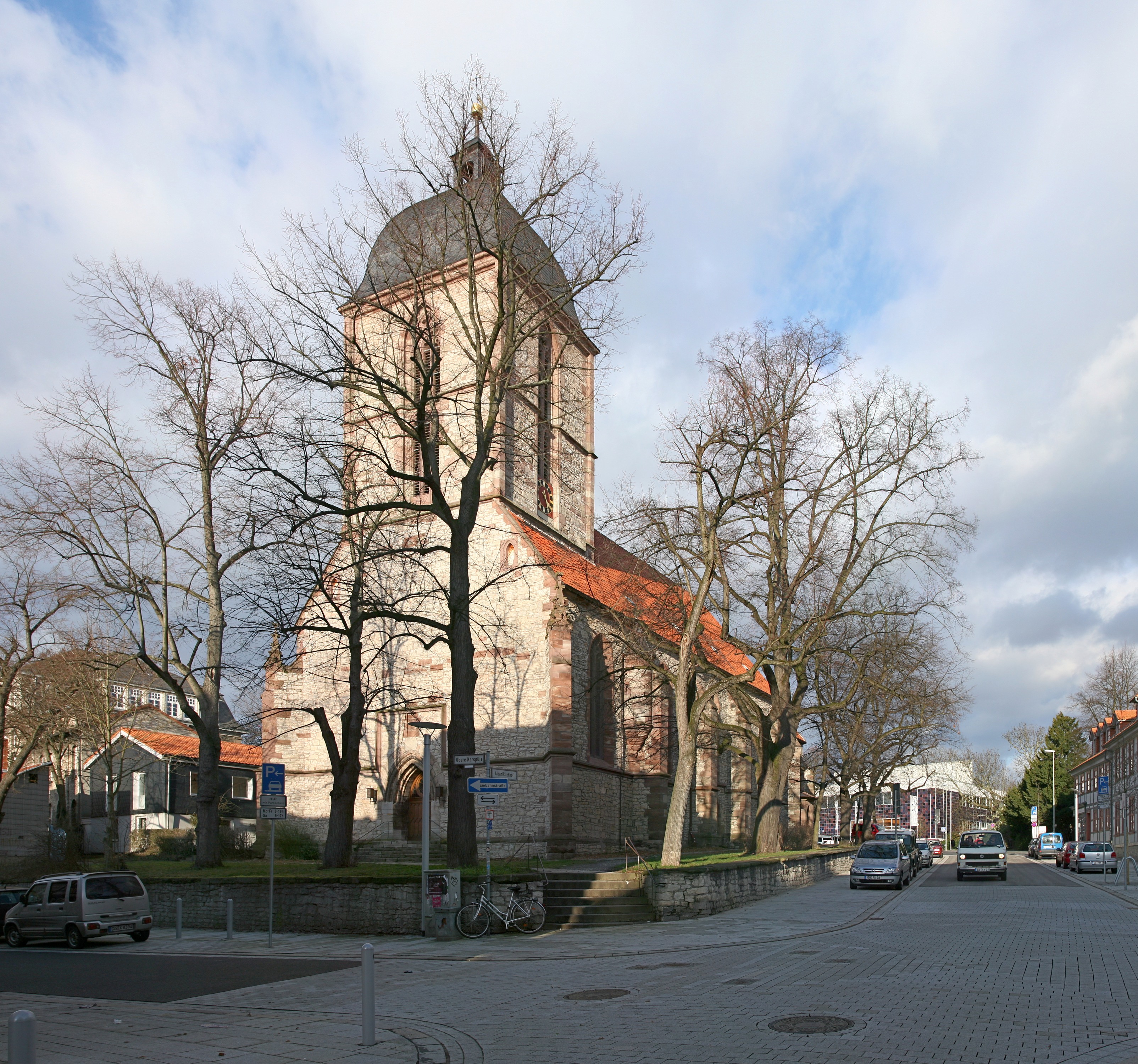|
Planck
Max Karl Ernst Ludwig Planck (; ; 23 April 1858 – 4 October 1947) was a German theoretical physicist whose discovery of energy quanta won him the Nobel Prize in Physics in 1918. Planck made many substantial contributions to theoretical physics, but his fame as a physicist rests primarily on his role as the originator of quantum theory and one of the founders of modern physics, which revolutionized understanding of atomic and subatomic processes. He is known for the Planck constant, which is of foundational importance for quantum physics, and which he used to derive a set of units, today called Planck units, expressed only in terms of fundamental physical constants. Planck was twice president of the German scientific institution Kaiser Wilhelm Society. In 1948, it was renamed the Max Planck Society (Max-Planck-Gesellschaft) and nowadays includes 83 institutions representing a wide range of scientific directions. Early life and education Planck came from a tradi ... [...More Info...] [...Related Items...] OR: [Wikipedia] [Google] [Baidu] |
Planck's Law
In physics, Planck's law (also Planck radiation law) describes the spectral density of electromagnetic radiation emitted by a black body in thermal equilibrium at a given temperature , when there is no net flow of matter or energy between the body and its environment. At the end of the 19th century, physicists were unable to explain why the observed spectrum of black-body radiation, which by then had been accurately measured, diverged significantly at higher frequencies from that predicted by existing theories. In 1900, German physicist Max Planck heuristically derived a formula for the observed spectrum by assuming that a hypothetical electrically charged oscillator in a cavity that contained black-body radiation could only change its energy in a minimal increment, , that was proportional to the frequency of its associated electromagnetic wave. While Planck originally regarded the hypothesis of dividing energy into increments as a mathematical artifice, introduced merely to ... [...More Info...] [...Related Items...] OR: [Wikipedia] [Google] [Baidu] |
Planck Units
In particle physics and physical cosmology, Planck units are a system of units of measurement defined exclusively in terms of four universal physical constants: ''Speed of light, c'', ''Gravitational constant, G'', ''Reduced Planck constant, ħ'', and Boltzmann constant, ''k''B (described further below). Expressing one of these physical constants in terms of Planck units yields a numerical value of 1 (number), 1. They are a system of natural units, defined using fundamental properties of Nature#Matter and energy, nature (specifically, properties of vacuum, free space) rather than properties of a chosen Prototype (metrology), prototype object. Originally proposed in 1899 by German physicist Max Planck, they are relevant in research on unified theories such as quantum gravity. The term Planck scale refers to quantities of space, time, energy and other units that are similar in magnitude to corresponding Planck units. This region may be characterized by particle energy, energies of ... [...More Info...] [...Related Items...] OR: [Wikipedia] [Google] [Baidu] |
Planck Constant
The Planck constant, or Planck's constant, denoted by h, is a fundamental physical constant of foundational importance in quantum mechanics: a photon's energy is equal to its frequency multiplied by the Planck constant, and the wavelength of a matter wave equals the Planck constant divided by the associated particle momentum. The constant was postulated by Max Planck in 1900 as a proportionality constant needed to explain experimental black-body radiation. Planck later referred to the constant as the "quantum of Action (physics), action". In 1905, Albert Einstein associated the "quantum" or minimal element of the energy to the electromagnetic wave itself. Max Planck received the 1918 Nobel Prize in Physics "in recognition of the services he rendered to the advancement of Physics by his discovery of energy quanta". In metrology, the Planck constant is used, together with other constants, to define the kilogram, the SI unit of mass. The SI units are defined in such a way that, w ... [...More Info...] [...Related Items...] OR: [Wikipedia] [Google] [Baidu] |
List Of Things Named After Max Planck
{{Short description, none This is a list of things named for the German scientist Max Planck: Physics *Boltzmann–Planck equation *Fokker–Planck equation *Nernst–Planck equation *Kelvin–Planck statement of the second law of thermodynamics *Massieu–Planck potentials *Planck potential *Planck proposition, Planck statement, Planck's principle; see Kelvin–Planck statement *Planckian locus Quantum mechanics *Planck constant *Planck postulate *Planck's law of black body radiation **Window_function#Planck-taper_window, Planck-taper window **Window_function#Planck–Bessel_window, Planck–Bessel window *Planck–Einstein relation Cosmology *Planck units **Planck energy **Planck length **Planck mass **Planck time **Planck temperature *Planck epoch *Planck postulate *Planck scale *Planck star *Trans-Planckian problem Other * 1069 Planckia, asteroid * Max Planck Society * Planck's principle * Planck (crater) on the Moon * Planck (spacecraft), space observatory * Max-Plan ... [...More Info...] [...Related Items...] OR: [Wikipedia] [Google] [Baidu] |
Erwin Planck
Erwin Planck (12 March 1893 – 23 January 1945) was a German politician, and a resistance fighter against the Nazi regime. Biography Born in Charlottenburg (today part of Berlin), Erwin Planck was the fourth child of Nobel Prize-winning physicist Max Planck (1858–1947) and his first wife Marie, née Merck (1861–1909). His father held a professorship at the Berlin Frederick William University since 1889 and had become a notable member of the German Physical Society (DPG); his children grew up in the wealthy environment of the Grunewald mansions colony. Having obtained his ''Abitur'' degree in 1911, Erwin Planck pursued a career as an officer in the German Army. In World War I, he soon found himself a prisoner of the French forces in 1914. Planck returned to Germany in 1917 and was active on the General Staff. There, he met Major Kurt von Schleicher, the beginning of a lifelong friendship. After the war, Major Schleicher became head of the political department in the new ... [...More Info...] [...Related Items...] OR: [Wikipedia] [Google] [Baidu] |
Quantum Mechanics
Quantum mechanics is the fundamental physical Scientific theory, theory that describes the behavior of matter and of light; its unusual characteristics typically occur at and below the scale of atoms. Reprinted, Addison-Wesley, 1989, It is the foundation of all quantum physics, which includes quantum chemistry, quantum field theory, quantum technology, and quantum information science. Quantum mechanics can describe many systems that classical physics cannot. Classical physics can describe many aspects of nature at an ordinary (macroscopic and Microscopic scale, (optical) microscopic) scale, but is not sufficient for describing them at very small submicroscopic (atomic and subatomic) scales. Classical mechanics can be derived from quantum mechanics as an approximation that is valid at ordinary scales. Quantum systems have Bound state, bound states that are Quantization (physics), quantized to Discrete mathematics, discrete values of energy, momentum, angular momentum, and ot ... [...More Info...] [...Related Items...] OR: [Wikipedia] [Google] [Baidu] |
Planck Postulate
The Planck postulate (or Planck's postulate), one of the fundamental principles of quantum mechanics, is the postulate that the energy of oscillators in a black body is quantized, and is given by : E=nh\nu\,, where ''n'' is an integer (1, 2, 3, ...), h is the Planck constant, and \nu (the Greek letter nu) is the frequency of the oscillator. The postulate was introduced by Max Planck in his derivation of his law of black body radiation in 1900. This assumption allowed Planck to derive a formula for the entire spectrum of the radiation emitted by a black body. Planck was unable to justify this assumption based on classical physics; he considered quantization as being purely a mathematical trick, rather than (as is now known) a fundamental change in the understanding of the world. In other words, Planck then contemplated virtual oscillators. In 1905, Albert Einstein adapted the Planck postulate to explain the photoelectric effect, but Einstein proposed that the energy of photons t ... [...More Info...] [...Related Items...] OR: [Wikipedia] [Google] [Baidu] |
Max Planck Medal
The Max Planck Medal is the highest award of the German Physical Society , the world's largest organization of physicists, for extraordinary achievements in theoretical physics. The prize has been awarded annually since 1929, with few exceptions, and usually to a single person. The winner is awarded with a gold medal and hand-written parchment. In 1943 it was not possible to manufacture the gold medal because the Berlin foundry was hit by a bomb. The board of directors of the German Physical Society decided to manufacture the medals in a substitute metal and to deliver the gold medals later. The highest award of the German Physical Society for outstanding results in experimental physics is the Stern–Gerlach Medal. List of recipients *2025 Reinhard F. Werner *2024 Erwin Frey *2023 Rashid A. Sunyaev *2022 Annette Zippelius *2021 Alexander Markovich Polyakov *2020 Andrzej Buras *2019 Detlef Lohse *2018 Juan Ignacio Cirac *2017 Herbert Spohn *2016 Herbert Wagner *2015 ... [...More Info...] [...Related Items...] OR: [Wikipedia] [Google] [Baidu] |
Old Quantum Theory
The old quantum theory is a collection of results from the years 1900–1925, which predate modern quantum mechanics. The theory was never complete or self-consistent, but was instead a set of heuristic corrections to classical mechanics. The theory has come to be understood as the semi-classical approximation to modern quantum mechanics. The main and final accomplishments of the old quantum theory were the determination of the modern form of the periodic table by Edmund Stoner and the Pauli exclusion principle, both of which were premised on Arnold Sommerfeld's enhancements to the Bohr model of the atom. The main tool of the old quantum theory was the Bohr–Sommerfeld quantization condition, a procedure for selection of certain allowed states of a classical system: the system can then only exist in one of the allowed states and not in any other state. History The old quantum theory was instigated by the 1900 work of Max Planck on the emission and absorption of light in ... [...More Info...] [...Related Items...] OR: [Wikipedia] [Google] [Baidu] |
Göttingen
Göttingen (, ; ; ) is a college town, university city in Lower Saxony, central Germany, the Capital (political), capital of Göttingen (district), the eponymous district. The River Leine runs through it. According to the 2022 German census, the population of Göttingen was 124,548. Overview The origins of Göttingen lay in a village called ''Gutingi, ''first mentioned in a document in 953 AD. The city was founded northwest of this village, between 1150 and 1200 AD, and adopted its name. In Middle Ages, medieval times the city was a member of the Hanseatic League and hence a wealthy town. Today, Göttingen is famous for its old university (''Georgia Augusta'', or University of Göttingen, "Georg-August-Universität"), which was founded in 1734 (first classes in 1737) and became the most visited university of Europe. In 1837, seven professors protested against the absolute sovereignty of the House of Hanover, kings of Kingdom of Hanover, Hanover; they lost their positions, but ... [...More Info...] [...Related Items...] OR: [Wikipedia] [Google] [Baidu] |
Copley Medal
The Copley Medal is the most prestigious award of the Royal Society of the United Kingdom, conferred "for sustained, outstanding achievements in any field of science". The award alternates between the physical sciences or mathematics and the biological sciences. It is arguably the highest United Kingdom, British and Commonwealth of Nations, Commonwealth award for scientific achievement, and has often been included among the most distinguished international scientific awards. Given annually, the medal is the oldest Royal Society medal awarded and the oldest surviving scientific award in the world, having first been given in 1731 to Stephen Gray (scientist), Stephen Gray, for "his new Electrical Experiments: – as an encouragement to him for the readiness he has always shown in obliging the Society with his discoveries and improvements in this part of Natural Knowledge". The medal is made of silver-gilt and awarded with a £25,000 prize. It is awarded to "senior scientists" irres ... [...More Info...] [...Related Items...] OR: [Wikipedia] [Google] [Baidu] |
Gustav Kirchhoff
Gustav Robert Kirchhoff (; 12 March 1824 – 17 October 1887) was a German chemist, mathematician, physicist, and spectroscopist who contributed to the fundamental understanding of electrical circuits, spectroscopy and the emission of black-body radiation by heated objects. He also coined the term ''black body'' in 1860. Several different sets of concepts are named "Kirchhoff's laws" after him, which include Kirchhoff's circuit laws, Kirchhoff's law of thermal radiation, and Kirchhoff's law of thermochemistry. The Bunsen–Kirchhoff Award for spectroscopy is named after Kirchhoff and his colleague, Robert Bunsen. Life and work Gustav Kirchhoff was born on 12 March 1824 in Königsberg, Prussia, the son of Friedrich Kirchhoff, a lawyer, and Johanna Henriette Wittke. His family were Lutheranism, Lutherans in the Evangelical Church of Prussia. He graduated from the Albertus University of Königsberg in 1847 where he attended the mathematico-physical seminar directed by Carl Gusta ... [...More Info...] [...Related Items...] OR: [Wikipedia] [Google] [Baidu] |





